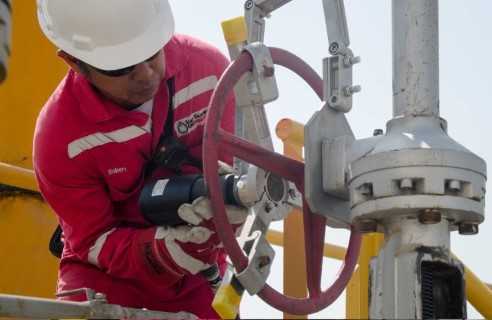COURSE OVERVIEW
IE0360 : Certified SIL Professional: Safety Instrumented Systems (SIS), Safety Integrity Level (SIL) & Emergency Shutdown (ESD) {IEC 61511 & IEC 61508}: Functional Safety

OVERVIEW
| COURSE TITLE | : | IE0360 : Certified SIL Professional: Safety Instrumented Systems (SIS), Safety Integrity Level (SIL) & Emergency Shutdown (ESD) {IEC 61511 & IEC 61508}: Functional Safety |
| COURSE DATE | : | Nov 03 - Nov 07 2024 |
| DURATION | : | 5 Days |
| INSTRUCTOR | : | Mr. Sydney Thoresson |
| VENUE | : | Dubai, UAE |
| COURSE FEE | : | $ 5500 |
| Request For Course | ||
OTHER SCHEDULED DATES
| Date | : | Feb 10 - Feb 14 2025 (5 Days) | Location | : | Abu Dhabi, UAE | Classroom Fee (US$) | : | $ 5500 | Course Info |
| Date | : | May 04 - May 08 2025 (5 Days) | Location | : | Al Khobar, KSA | Classroom Fee (US$) | : | $ 5500 | Course Info |
| Date | : | Aug 03 - Aug 07 2025 (5 Days) | Location | : | Doha, Qatar | Classroom Fee (US$) | : | $ 6000 | Course Info |
| Date | : | Oct 19 - Oct 23 2025 (5 Days) | Location | : | Kuwait City, Kuwait | Classroom Fee (US$) | : | $ 5500 | Course Info |
| Date | : | Nov 02 - Nov 06 2025 (5 Days) | Location | : | Dubai, UAE | Classroom Fee (US$) | : | $ 5500 | Course Info |
Course Description
This practical and highly-interactive course includes various practical sessions and exercises. Theory learnt will be applied using our state-of-the-art simulators. The course will help the participants to improve compliance and reduce costs by guiding them through the development of the safety system including safety system layout, product selection and safety analysis to help them meet machinery safety performance level (PL) requirements as outlined by global standard (EN) ISO 13849-1. The operation of many industrial processes, especially those in the chemical or oil & gas industries, involve inherent risk due to the presence of dangerous chemicals or gases. Safety Instrumented Systems (SIS) are specifically designed to protect personnel, equipment, and the environment by reducing the likelihood or the impact severity of an identified emergency event. Explosions and fires account for millions of dollars of losses in the ch emical or oil & gas industries each year. Since a great potential for loss exists, it is common for industry to employ Safety Instrumented Systems (SIS) to provide safe isolation of flammable or potentially toxic material in the event of a fire or accidental release of fluids.It is a good engineering procedure for safety instrumented system (SIS) design. In the safety lifecycle, process risks are evaluated and SIS Performance requirements are established (availability and risk reduction). Layers of protection are designed and analyzed. Finally, a SIS (if needed) is optimally designed to meet the particular process risk. Safety integrity levels are order of magnitude levels of risk reduction. There are four SIL?s defined in this standard, just as in IEC 61508. SIL1 has the lowest level of risk reduction. SIL4 has the highest level of risk reduction. The standard suggests that applications which require the use of a single safety instrumented function of SIL 4 are rare in the process industry and that they shall be avoided where reasonably practicable. The standard is primarily concerned with safety-instrumented systems for the process industry sector (sensors, logic solvers and final elements are included as part of the safety instrumented system). It also deals with the interface between safetyinstrumented systems and other safety systems in requiring that a process hazard and risk assessment be carried out. This course will explain the basic concepts, definitions and commonly used terms in Safety Instrumented Systems and provide a basic understanding of SIS related concepts
TRAINING METHODOLOGY
This interactive training course includes the following training methodologies:
LecturesWorkshops & Work Presentations
Case Studies & Practical Exercises
Videos, Software & Simulators
In an unlikely event, the course instructor may modify the above training methodology for technical reasons.
VIRTUAL TRAINING (IF APPLICABLE)
If this course is delivered online as a Virtual Training, the following limitations will be applicable:
| Certificates | : | Only soft copy certificates will be issued |
| Training Materials | : | Only soft copy materials will be issued |
| Training Methodology | : | 80% theory, 20% practical |
| Training Program | : | 4 hours per day, from 09:30 to 13:30 |
RELATED COURSES

IE0274 : Motor Operated Valves Maintenance & Troubleshooting
- Date: Jan 19 - Jan 23 / 3 Days
- Location: Dubai, UAE
- Course Details Register

IE0013 : Fiber Optics Access Network Planning
- Date: Jan 19 - Jan 23 / 3 Days
- Location: Dubai, UAE
- Course Details Register

IE0700 : Cyber Security of Industrial Control System (PLC, DCS, SCADA & IED)
- Date: Jan 19 - Jan 23 / 3 Days
- Location: Dubai, UAE
- Course Details Register

IE0338 : Inspection, Maintenance & Calibration Program of Terminal Flowmetering Station
- Date: Jan 19 - Jan 23 / 3 Days
- Location: Istanbul, Turkey
- Course Details Register
